Your Monthly Biz Tech Roundup from Seeto
February is the month of carnival and this month we’re bringing you a veritable festival of news and views.
In need to know now, we throw light on changes coming to Google Workspace and Microsoft teams – for better and for worse. We look at the 2023 Cyber Essentials updates and think about how the recent guidance on password sharing might affect business tech.
In the Seeto Take we take a deep dive into artificial intelligence, cut through the hype and the buzzwords and ask what might this mean for business technology.
Need To Know
The Intellectual Property Office (IPO) declares password sharing a breach of copyright
The IPO quietly published new guidance just before Christmas, in conjunction with the Facebook and Instagram owner Meta, explaining that password sharing breaks copyright laws. The guidance at this stage specifically refers to accessing streaming media services without paying; however, expect that this sets a precedent for other paid service providers. Password sharing should be avoided at all costs; indeed, many paid business technology services already expressly forbid sharing accounts between staff, but we find this interesting in case it becomes illegal for these services.
January was busy with Google Workspace updates
Google has been busy improving Google Workspace, with the ability to view non-printing characters such as line breaks, section breaks, tabs and spaces arriving in Google Docs; and in-meeting reactions (familiar to any Microsoft Teams users) arriving in Google Meet, alongside the ability to view Google Slides speaker notes directly in your Google Meet window when presenting a presentation.
New option to view non-printing characters in Google Docs
New in-meeting reactions for Google Meet
View speaker notes while presenting Google Slides in Google Meet
Teams Premium: more for more
Microsoft has announced a new Teams Premium tier with new functionality. Unfortunately, those with Microsoft 365 subscriptions may find themselves spending more to keep their favourite features. The following previously included features become premium-only in February 2023: Live translated captions, timeline markers in Teams meeting recordings for when a user left or joined meetings, custom Together mode scenes and a host of Virtual Appointments features. Teams Premium will include new personalisation and AI functionality, as well as security features such as watermarking. Pricing has been announced as $10/user/month in the US, with an introductory discount. UK pricing is still to be announced. Read more at Windows Central Read more at ThurrottThe 2023 Cyber Essentials update has been announced
The National Cyber Security Centre (NCSC) and IASME have announced the changes to the Cyber Essentials scheme for 2023. Version 3.1 of the requirements is now available from the NCSC website and the 2023 question set will arrive on 24th April 2023. The changes this year are relatively small, but do speak to Seeto if you would like to get ahead of the changes and start your Cyber Essentials now. Read the update from IASME Download the new requirementsProduct Showcase

Okta is a customizable, secure, drop-in solution to add authentication and authorisation services to your applications.
You can connect any application in any language or stack to Okta and define how you want your users to sign in. Okta will verify their identity and send the required information back to your app whenever a user tries to authenticate.
What can you do with Okta?
- Provide your company’s universal directory and the single source of truth for your user identities
- Keep your apps safe by enforcing security policies that are right for your business e.g. multi-factor authentication, network zone restrictions
- Create a great user experience and improve employee productivity
- Okta has 7000+ integrations available and the ability to build your own apps
- And Okta is trusted by more than 13, 000 global brands to secure their digital interactions with employees and customers
Did you know that Okta was named a leader in the Gartner Magic Quadrant for Access Management, in November 2022?
For more information about how Okta can work with your tech stack, send a message through the contact form.
The Seeto Take
Fear the machines?

I considered asking artificial intelligence to write this article. It seemed fitting that an article about artificial intelligence and its application in business technology should be written by the software that, if the media is to be believed, will one day replace us. However, today isn’t the day that our friends pictured above will replace me as the author of this Take Ctrl article.
What is artificial intelligence?
We’re not talking about sentient robots, at least not yet. In 1950, Alan Turing posed the question of whether robots could think, sparking the development of a scientific field which continues to push boundaries and raise ethical and philosophical questions. The term artificial intelligence itself was coined in 1956.
There have been demonstrations of artificial intelligence before, notably from IBM when their computers beat Russian chess grandmaster Garry Kasparov in 1997 and won the American quiz show “Jeopardy!” in 2011; however, in the last 2-3 years we have started to see consumer-accessible artificial intelligence thanks in great part to a company called OpenAI, an American artificial intelligence research laboratory.
OpenAI uses trillions of pieces of data to train its artificial intelligence algorithms. They have released several products, most notably:
- GPT-3, a “language model” that aims to answer written questions naturally, in 2020
- DALL-E, a “deep learning model” that generates images from written prompts, in 2021
- ChatGPT, which is a fine-tuned chatbot built on GPT-3’s technology, in 2022
OpenAI is not the only company working in this space but arguably has garnered the most press attention; their artificial intelligence products have created waves. ChatGPT makes it easy for laypeople to ask questions and receive answers from the AI’s bank of training data, as well as to provide the AI with prompts to generate text.
These products are not without controversy. ChatGPT has been accused of a high margin of error and of generating racist and sexist responses. An associate communications lecturer detected AI-generated text in almost one-fifth of assessments submitted in their master’s programme at Deakin University in Australia this year. Getty Images has forbidden AI-generated images from its media library and is currently suing the maker of one AI art tool, Stable Diffusion, over copyright concerns, alleging that the software has infringed its copyright by including its images in the data used to train the tool.
How might artificial intelligence disrupt business technology?
Given what we have seen so far, we can make some predictions. Microsoft struck an exclusive licensing deal for GPT-3 in 2020, meaning they have sole access to GPT-3’s underlying model, the technology that makes the AI work. We’ve already seen some innovation built on this partnership, such as AI-assisted app generation in Microsoft Power Apps and AI image generation in Microsoft Designer, a web app for creating graphics, such as logos, blog banners and social media posts, currently in open preview. Microsoft Designer is aimed at the consumer market, but expect to see similar capabilities cropping up in marketing tools aimed at the SME market.
On Twitter, Danny Richman posted about using GPT-3, Gmail and Zapier (a clicks-not-code cloud automation platform) to help a business owner with poor literacy skills to send professional communications to his clients. He followed up by announcing a collaboration to support people with dyslexia to communicate more effectively.
Given Microsoft’s partnership, we might expect to see more integrated, automatic creation of Office documents, presentations and possibly analysis in spreadsheets. We might also expect to see more AI-generated text. Business knowledgebase Notion has already released an alpha version of their text generation and editing AI, suggesting it could be used for blog posts, meeting agendas, social media posts, press releases and job descriptions. Using AI in the workplace could make writing customer communications more efficient and help businesses to move away from boilerplate templated emails to more personalised (although by their nature impersonal) forms of contact.
We have even seen the release of an AI-powered search engine, which aims not to present a list of links, but to return an answer to your query from a variety of sources. Given the criticism that other AI software has received for the inaccuracy of the information these tools return, AI-powered search will have to work hard to gain and maintain users’ trust.
There are certainly positive applications for AI, but we’re also beginning to see AI used to nefarious ends. Corporate cyber security solutions provider, WithSecure, recently published research conducted into AI-generated phishing attacks demonstrating “that large language models can be used to craft email threads suitable for spear phishing attacks”, concluding that cybercrime and cyber-attacks could in future be driven by AI. It took only a week from the research being published before CheckPoint, a security company specialising in firewall appliances, detected conversations discussing how to leverage ChatGPT to create malware that would evade today’s AV tools.
Notably quiet had been Google. Google established Google AI in 2017, but the business unit has been quiet until very recently. After questions from Google staff before Christmas, the issuing of a “code red” by Google management and the return of founders Larry Page and Sergey Brin, it seems there has been a renewed focus on AI, with The New York Times recently leaking (possible paywall) Google’s intention to release as many as 20 new products and demonstrate AI-integrated search this year.
It will undoubtedly be an interesting year as we start to see artificial intelligence move closer to the mainstream. What its effects on society will be, only time will tell.
Recent OS Updates
Last updated 5 August 2024
Windows
Microsoft currently supports Windows 10 and Windows 11.
- Windows 10 version 22H2 (10.0.19045)
- Windows 11 version 22H2 (10.0.22621) and version 23H2 (10.0.22631)
macOS
Apple officially supports the following Mac operating systems:
- macOS Sonoma 14.6
- macOS Ventura 13.6.8
- macOS Monterey 12.7.6
iOS and iPadOS
The supported iPhone and iPad operating systems are:
- iOS 17.6
- iPadOS 17.6
Android
Google supports the following Android operating systems:
- Android 14
- Android 13
- Android 12
Note that your device manufacturer may not support every version that Google produces security fixes for.
Learn how to check and update your Android version here.

